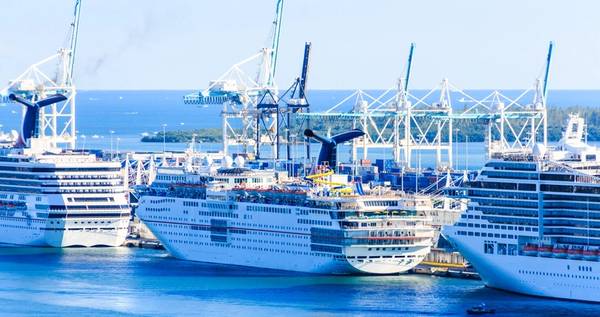
Florida’s seaports are one of the state’s greatest economic assets, positively affecting every region and every resident. Our seaports have a $117.6 billion economic impact across Florida and account for more than 900,000 direct and indirect jobs, while linking our communities to vital national and international markets.
During the COVID-19 crisis, ports across the country have sustained mounting losses. Ports that specialize in moving hard-hit cargoes like steel and automobiles, or depend on tourism and cruise ships are also particularly vulnerable. A recent Miami Herald article reported PortMiami alone has lost hundreds of millions in fees and revenue, impacting the 60,000 jobs the port supports.
It is imperative that ports, like other businesses, receive the resources necessary to deal with these unprecedented challenges. We have been working with the American Association of Port Authorities to advocate for this federal relief to ensure ports continue to be an economic driver, especially in rural communities.
Congress is currently discussing legislation to provide relief to the maritime sector amid the ongoing COVID-19 pandemic. In addition, congressional appropriation committees are beginning to discuss additional federal funding for vital seaport infrastructure. Now is the time to ensure that Florida’s maritime industry has the resources and equipment they need to keep the global supply chain moving and stay safe while doing so.
Whether moving over 100 million tons of cargo annually or millions of U.S. and international cruise passengers, Florida’s seaports generate and support a vast array of commerce and are the gateway for shipment of goods into and out of Florida.
Unfortunately, negative impacts from the pandemic continue to rise at our ports and in the communities our ports support. At this point, we believe there will be a decline of more than $700 million in direct spending, $620 million in wages and 40,000 Florida jobs in connection with maritime business losses.
Congress must pass legislation to provide the maritime sector the same protections and relief given to other industries during COVID-19, and close a huge gap in current federal emergency assistance that has left links in the maritime supply chain isolated and unable to access other assistance programs available to other industries.
Every single day, Florida’s ports continue to deliver critical goods and materials to individuals, families and businesses. While maintaining this state of readiness, ports are diligently protecting workers and visitors through enhanced sanitation procedures, personal protective equipment, and mitigation response, including capital infrastructure retrofitting equipment, improved HVAC filters and hands-free building access.
But even as we work to maintain our state of readiness, the full impact of the COVID-19 pandemic on Florida seaports is yet to be determined as the situation continues to evolve and disruption to global supply chains continue. At this point, there have been no relief measures for ports included in the federal funding packages. Across the state and nation, our ports are economic engines of our communities and will be key in getting the U.S. economy back on track. Federal support will be a critical factor in the success of our ports and port communities as we begin to recover from this pandemic.




